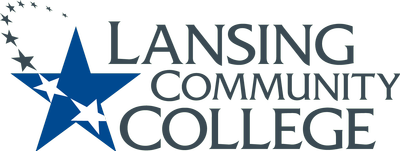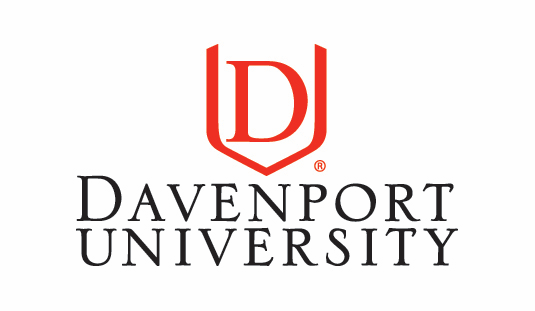
Health Technology I & II
Health Technology I
This program is offered to juniors and seniors. Students taking this course are in for a fast-paced introduction to the field of healthcare. Students learn lab skills, become proficient in vital signs, and have the opportunity to earn CPR certification. The program utilizes a combination of lectures and labs to provide exposure to a wide variety of health career paths, helping students determine if the healthcare field is a good fit for them. Students are immersed in the language of healthcare through the study of medical terminology and learn basic anatomy and physiology.
Program Overview
Program Location
LCC Main Campus (Shuttle Available)
Session Offered
AM/PM
Average Lecture Days/Week
2 days
Reviews/Week
2 days
Average Lab Days/Week
1 day
Homework
Daily
Required Reading
- College level textbooks
- Workbooks
- E-books
- Internet
Success Indicators
- Highly motivated
- Strong work ethic
- Excel in fast-paced learning environments
- Enjoy writing and researching projects
College Credits - 7
- CHSE 100 - Introduction to Health Professions
- CHSE 120 - Medical Terminology
Academic Rigor
4 out of 5
Capital Region Technical Early College (CRTEC)
Students enrolled in this program may choose to participate in the Capital Region Technical Early College program. This is a high school-to-college program where students start in grade 11 and end their 13th year with a degree or certification. This program gives students relevant career related experiences.
Students Learning Outcomes include but are not limited to:
- Select three ways to classify hospitals or healthcare facilities
- List the various methods used to pay for healthcare in the United States
- Using word problems, calculated patient dosage using the metric system and common mathematical formulas related to health care
- Measure patient vital signs based on State of Michigan standards
- Identify three strategies healthcare providers can employ when communicating with patients and staff to accurately convey information and develop rapport
- Explain the necessity for critical thinking in a healthcare setting
- After completing OSHA-required training in Blood Borne Pathogens and Standards Precautions, list the requirements for maintaining Universal Standards
- Given the list of medical abbreviations, root words, prefixes and suffixes, construct medical words, and give the meaning of medical abbreviations
- Using the five-step educational process provided, create a teaching plan to communicate information about selected health career programs
- Identify organizations that contribute to patient safety and overall healthcare quality with regard to regulations, standards and facility accreditation
- Divide basic medical terms into component parts
- Spell and pronounce medical terms correctly
Certifications
CPR for Health Care Providers
Health Tech II LCC
- National Certified Patient Care Technician (NCPCT)
- Certified Nurse Assistant (CNA)
Health Tech II DU
- Certified Clinical Medical Assistant (CCMA)
Student Leadership
Students have the opportunity for leadership, competition and community service through membership in HOSA.
Careers
- Acute Care Nurse
- Registered Nurse
- Radiology Technician
- Medical Records Specialist
- Pharmacy Technician
Median Wage
- Acute Care Nurse: $41.38 Hourly, $86,070 Annually
- Registered Nurse: $41.38 Hourly, $86,070 Annually
- Radiology Technician: $35.29 Hourly, $73,410 Annually
- Medical Records Specialist: $23.45 Hourly, $48,780 Annually
- Pharmacy Technician: $19.37 Hourly, $40,300 Annually
Employment Outlook (Average)
- Acute Care Nurse: 5-8%
- Registered Nurse: 5-8%
- Radiology Technician: 5-8%
- Medical Records Specialist: 9%
- Pharmacy Technician: 5-8%
Health Technology II - LCC
Summary of Program
This program will prepare students to be Certified Nurse Assistants (CNA) and Patient Care Technicians (PCT). Upon successful completion of this program, students are qualified to take the Certified Nurse Aide exam as well as the National Certified Patient Care Technician exam.
- Course content will be delivered through a combination of lecture, lab, and clinical experience.
- A typical week would consist of 2 days of lecture and 3 days of lab
- Students will complete 30 clinical hours for each certification earned
- NOTE - Students must have required vaccinations, 2-step TB Testing, and background checks completed before starting the school year.
Summary of Skills you will Learn
- Wide variety of direct patient care skills, including, but not limited to:
- Assist the resident to ambulate using a gait belt, positioning, and transfers
- Assist the resident with the use of a bedpan, measure, and record urine output
- Catheter care for male and female residents
- Dressing and feeding a resident
- Mouth Care - Brushing teeth and denture care
- Modified bed, bath, and face care
- Range of motion skills
- Perineal care for male and female residents
- Basic EKG procedures
- Basic phlebotomy procedures
Career Opportunities
Health Aide/Certified Nurse Aide (CNA)
- Care for patients, including vital signs monitoring, personal care, and patient assistance and support
- Will typically work in a Long-Term Care facility
Patient Care Technician (PCT)
- Assist patients with everyday needs, monitor vital signs
- Take fluid samples and assist nursing staff as necessary
- Will typically work in a hospital setting
Credits Earned - 10 College Credits Total
CHSE 108 - Long Term Care Nurse Aid
- 4 credits earned
CHSE 151 - Patient Care Technician
- 6 credits earned
Health Technology II - DU
Summary of Program
This program focuses on becoming a Certified Clinical Medical Assistant (CCMA). Upon successful completion of this program, students will be qualified to take the Certified Clinical Medical Assistant (CCMA) exam.
A Medical Assistant plays a crucial role in healthcare settings, contributing to the smooth and efficient operation of medical offices, clinics, and hospitals. Their responsibilities encompass a diverse range of administrative and clinical tasks.
The course material will be presented through lectures and practical lab sessions. Homework assignments will primarily involve utilizing an online simulator and modules. A standard week in the course will consist of 2 days dedicated to lectures, two days allocated for hands-on lab work, and one seminar day.
Administrative Side
Medical Assistants often handle tasks such as scheduling appointments, maintaining patient records, and managing communication between patients and healthcare providers. They may also handle billing and coding procedures.
Clinical Side
Medical Assistants assist healthcare professionals in various ways. This includes taking patients' vital signs, preparing examination rooms, and helping with medical procedures. They may also be involved in drawing blood, administering injections, and conducting basic laboratory tests. Additionally, medical assistants provide valuable support in patient education, explaining treatment and procedures, medications, and post-care instructions.
Career Opportunities
Certified Clinical Medical Assistant (CCMA)
- Coordinate patient scheduling, facilitate office visits, and manage patient records, including Electronic Health Records (EHR)
- Job opportunities are prevalent with physicians' offices, clinics, chiropractors' offices, hospitals, and outpatient facilities.
Credits Earned - 6 College Credits
MEDA 254 - Clinical Patient Care
- 3 credits earned
MEDA 255 - Clinical Laboratory Procedures
- 3 credits earned







